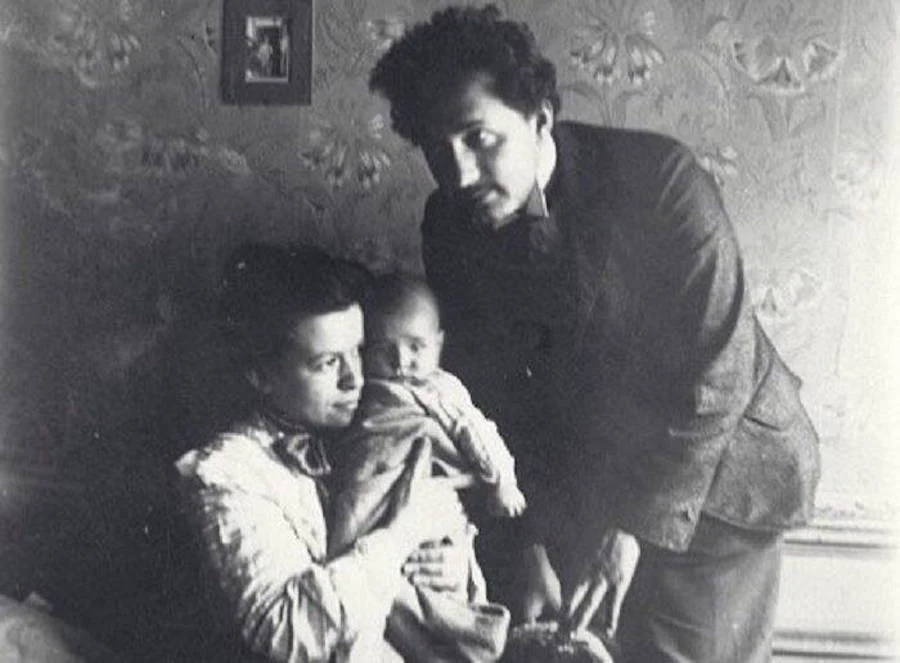A letter from Albert Einstein to his daughter
In the closing years of the 1980s, Lieserl, the esteemed progeny of the iconic luminary Albert Einstein, bestowed upon the annals of posterity a treasure trove of intellectual heritage. This invaluable endowment comprised a staggering collection of 1,400 epistolary gems, meticulously crafted by the venerable Einstein himself. Entrusted to the venerable halls of Hebrew University, these missives bore a sacred decree: their contents were to remain veiled from the world’s eyes until the passage of two decades following the maestro’s transcendence from mortal realms.
Among this repository of intellectual riches lies a particular missive, penned with tender affection and paternal wisdom, addressed tenderly to Lieserl Einstein, the cherished scion of Einstein’s lineage. To grasp the true essence and significance of this epistolary exchange, one must delve into the profound context that surrounds its genesis, thereby unraveling layers of depth and meaning inherent in the correspondence shared between the preeminent physicist and his beloved daughter.
Providing context to the letter’s origins adds depth and significance to the communication between Einstein and his daughter.
“When I proposed the theory of relativity, very few understood me, and what I will reveal now to transmit to mankind will also collide with the misunderstanding and prejudice in the world. There is an extremely powerful force that, so far, science has not found a formal explanation to. It is a force that includes and governs all others, and is even behind any phenomenon operating in the universe and has not yet been identified by us. This universal force is LOVE.”
Einstein introduces the central theme of the letter—love as a fundamental force in the universe—setting the tone for his philosophical reflections.
When scientists looked for a unified theory of the universe they forgot the most powerful unseen force. Love is Light, that enlightens those who give and receive it. Love is gravity, because it makes some people feel attracted to others. Love is power, because it multiplies the best we have, and allows humanity not to be extinguished in their blind selfishness.
To give visibility to love, I made a simple substitution in my most famous equation. If instead of E = mc^2, we accept that the energy to heal the world can be obtained through love multiplied by the speed of light squared, we arrive at the conclusion that love is the most powerful force there is, because it has no limits.
Einstein offers a radical reinterpretation of his famous equation, emphasizing the transformative potential of love.
After the failure of humanity in the use and control of the other forces of the universe that have turned against us, it is urgent that we nourish ourselves with another kind of energy…
If we want our species to survive, if we are to find meaning in life, if we want to save the world and every sentient being that inhabits it, love is the one and only answer.
Einstein presents love as the solution to humanity’s existential crises, echoing themes of unity and interconnectedness.
Perhaps we are not yet ready to make a bomb of love, a device powerful enough to entirely destroy the hate, selfishness and greed that devastate the planet.
However, each individual carries within them a small but powerful generator of love whose energy is waiting to be released.
When we learn to give and receive this universal energy, dear Lieserl, we will have affirmed that love conquers all, is able to transcend everything and anything, because love is the quintessence of life.
Einstein concludes with a powerful affirmation of love’s transformative power and its ability to transcend barriers.
I deeply regret not having been able to express what is in my heart, which has quietly beaten for you all my life. Maybe it’s too late to apologize, but as time is relative, I need to tell you that I love you and thanks to you I have reached the ultimate answer!”
Your father, Albert Einstein
Einstein closes the letter with a personal reflection, expressing his love for his daughter and gratitude for the insights love has brought him.


